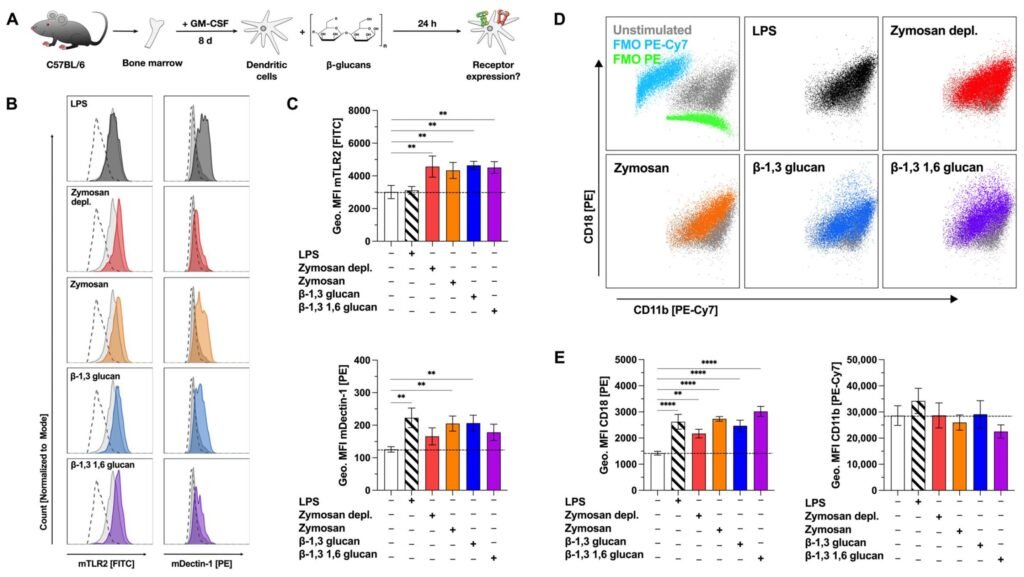A recent study conducted by researchers at the Paul-Ehrlich-Institut delved into the immunomodulating properties of β-glucans, natural sugar compounds found in bacteria, fungi, and grains. The findings suggest that β-glucans have the potential to target the immune system and modulate pro-inflammatory responses, showing promise in suppressing allergic reactions and offering new avenues for allergy treatment. The study was published in the International Journal of Molecular Sciences.
The potential of β-glucans as adjuvants is particularly exciting. Adjuvants are used in vaccines to enhance the immune response and boost vaccination efficacy. They are also utilized in therapeutic allergens to modulate the immune system, helping to reduce allergic reactions and assist patients in building tolerance to allergens.
A research team, led by PD Dr. Stefan Schülke, investigated six different β-glucans, including zymosan and other β-1,3 glucans, to understand their impact on the immune system. The results revealed that these substances activate various immune cells and influence the release of pro-inflammatory substances differently. Zymosan and β-1,3 glucan stood out for their ability to reduce inflammatory markers and suppress allergy-related immune responses.
The study’s outcomes hold promise for the development of novel therapeutic strategies for allergies. In the future, β-glucans could play a crucial role in preventing allergic reactions and precisely modulating the immune response.
Highlighted results from the study detailed the activation of dendritic cells, specific immune cells derived from mouse bone marrow, by β-glucans. The tested β-glucans activated the C-type lectin receptor Dectin-1a and strongly triggered the Toll-like receptor 2 (TLR2), with zymosan being particularly potent. Moreover, the β-glucans induced varying degrees of cytokine secretion and cell metabolism activation in dendritic cells.
Further analysis of zymosan, β-1,3 glucan, and β-1,3/1,6 glucan revealed increased dendritic cell activation and upregulation of essential surface markers. The cytokine secretion induced by β-glucans was found to be dependent on the activation of the intracellular Dectin-1 adapter molecule Syk. In co-cultures with mouse T cells sensitized to the major birch pollen allergen Bet v 1, certain β-glucans suppressed allergen-induced IL-5 secretion, suggesting their potential to modulate allergic immune responses.
The study, led by Hannah Rainer et al., underscores the immune-modulating properties of various β-glucans on myeloid dendritic cells. For more information, refer to the International Journal of Molecular Sciences (2024) with the DOI: 10.3390/ijms25189914.
In conclusion, the research conducted by the Paul-Ehrlich-Institut sheds light on the promising role of β-glucans as adjuvants for allergy treatment. These findings open up new possibilities for managing allergies and fine-tuning the immune response for better patient outcomes.


